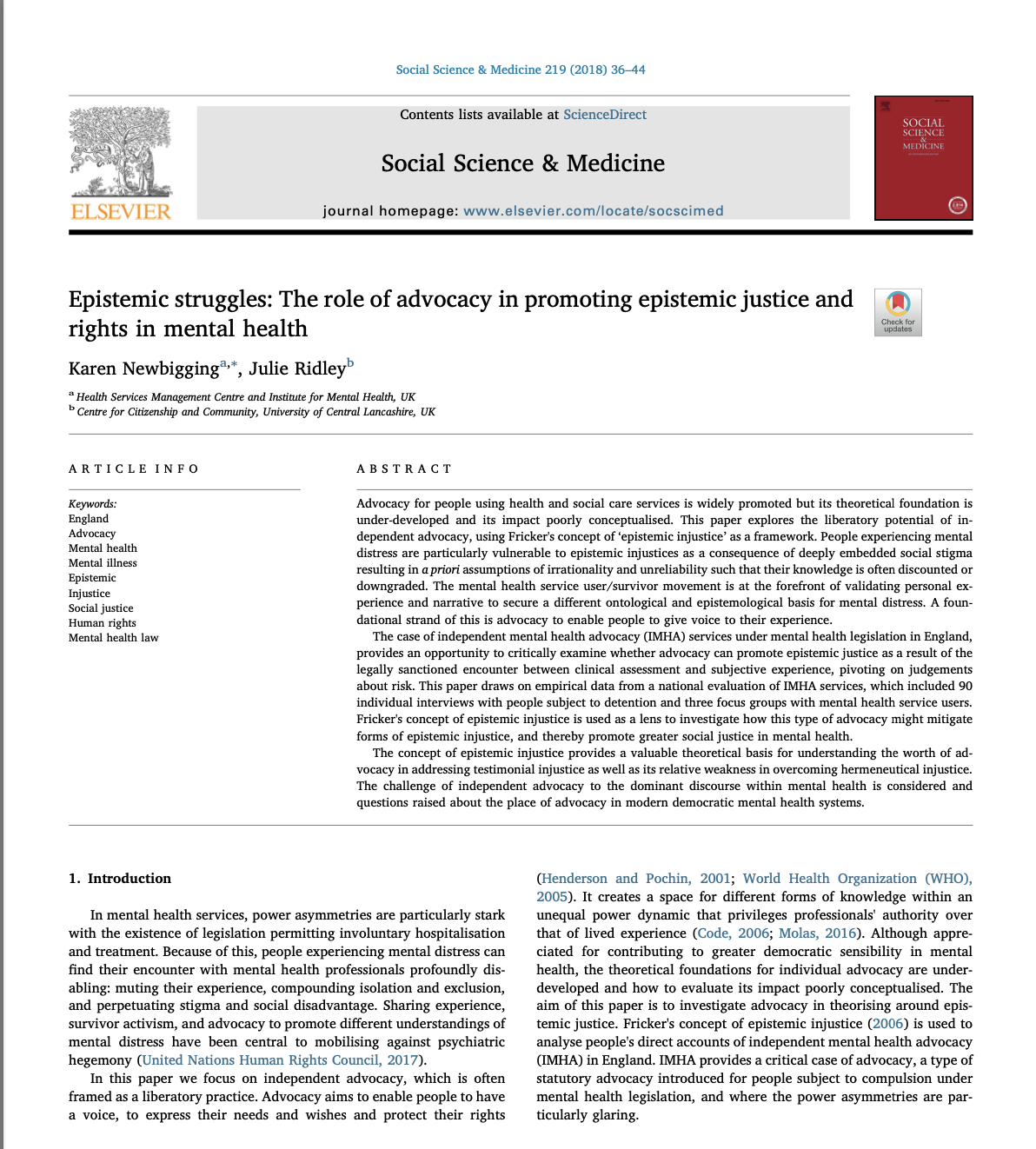Global Allergy & Airways Patient Platform
Bronchiectasis Educational Flyers
Guide
05 Feb 2026
Science Direct: Social Sciences and Medicine
22 Nov 2024

Advocacy for people using health and social care services is widely promoted but its theoretical foundation is under-developed and its impact poorly conceptualised. This paper explores the liberatory potential of in- dependent advocacy, using Fricker's concept of ‘epistemic injustice’ as a framework. People experiencing mental distress are particularly vulnerable to epistemic injustices as a consequence of deeply embedded social stigma resulting in a priori assumptions of irrationality and unreliability such that their knowledge is often discounted or downgraded. The mental health service user/survivor movement is at the forefront of validating personal ex- perience and narrative to secure a different ontological and epistemological basis for mental distress. A foun- dational strand of this is advocacy to enable people to give voice to their experience.
The case of independent mental health advocacy (IMHA) services under mental health legislation in England, provides an opportunity to critically examine whether advocacy can promote epistemic justice as a result of the legally sanctioned encounter between clinical assessment and subjective experience, pivoting on judgements about risk. This paper draws on empirical data from a national evaluation of IMHA services, which included 90 individual interviews with people subject to detention and three focus groups with mental health service users. Fricker's concept of epistemic injustice is used as a lens to investigate how this type of advocacy might mitigate forms of epistemic injustice, and thereby promote greater social justice in mental health.
The concept of epistemic injustice provides a valuable theoretical basis for understanding the worth of ad- vocacy in addressing testimonial injustice as well as its relative weakness in overcoming hermeneutical injustice. The challenge of independent advocacy to the dominant discourse within mental health is considered and questions raised about the place of advocacy in modern democratic mental health systems.